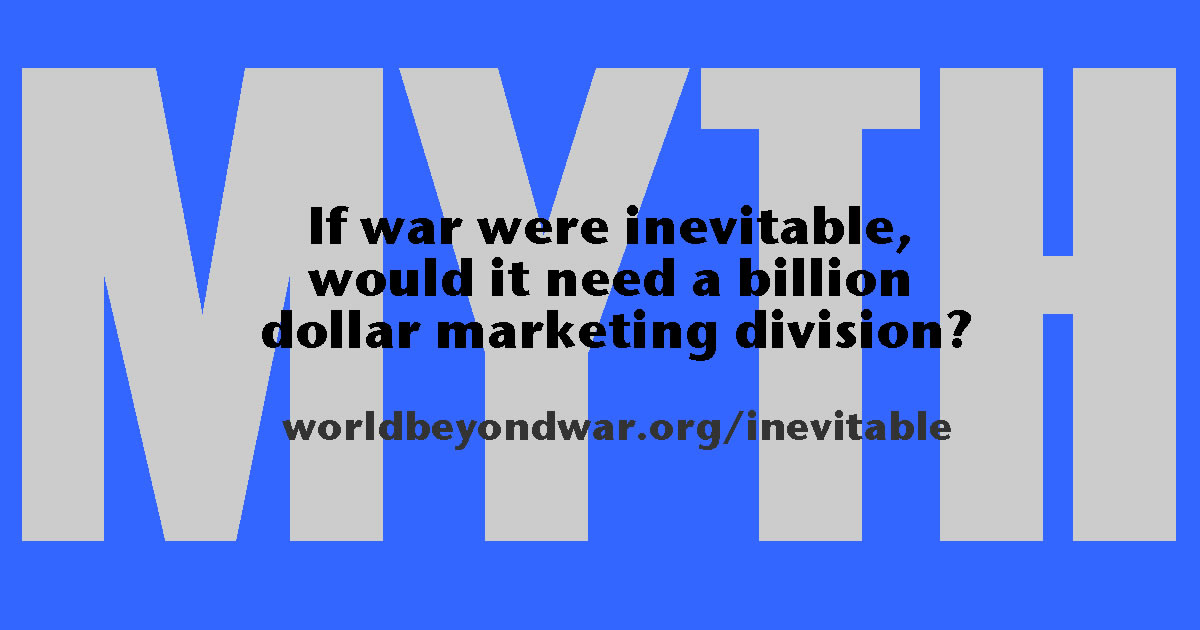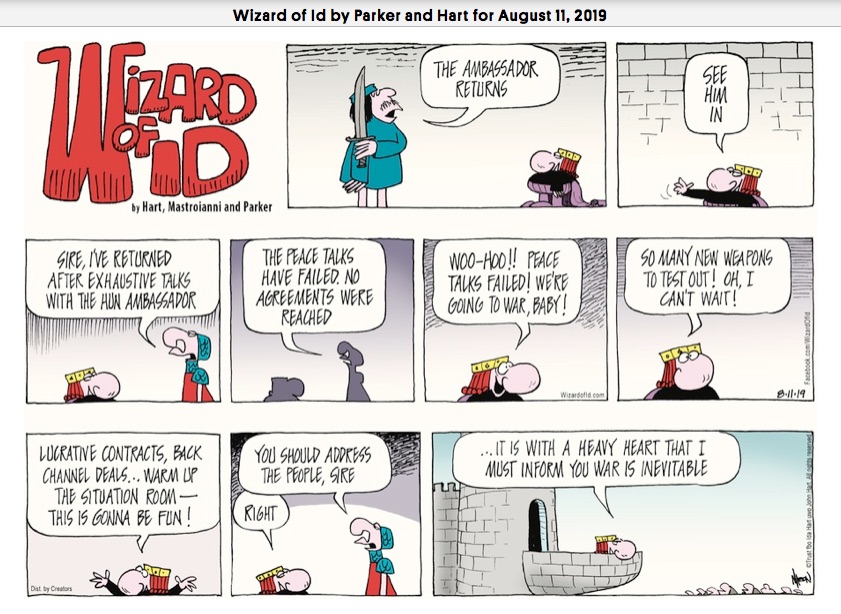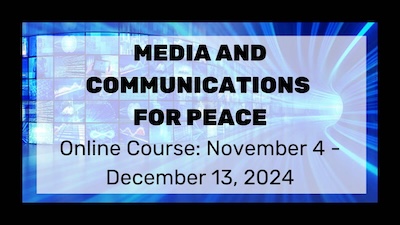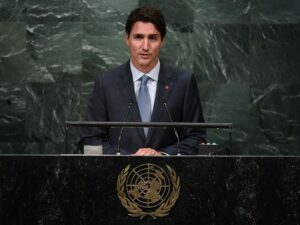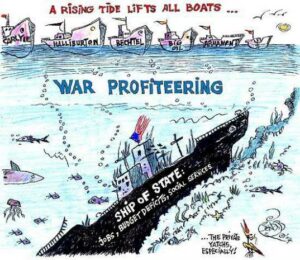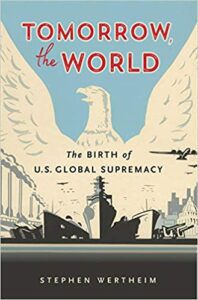Fact: War is a human choice not limited by any law of nature or biological determinism.
If war were inevitable, there would be little point in trying to end it. If war were inevitable, a moral case might be made for trying to lessen its damage while it continued. And numerous parochial cases could be made for being prepared to win inevitable wars for this side or that side. In fact, governments do just this, but their premise is in error. War is not inevitable.
Even violence on a small scale is not inevitable, but the incredibly difficult task of ending violence is a million miles past the simpler, if still challenging, task of ending organized mass slaughter. War is not something created by the heat of passion. It takes years of preparation and indoctrination, weapons production and training.
War is not ubiquitous. Nothing resembling current forms of war existed centuries or even decades ago. War, which has existed in almost completely different forms, has been mostly absent throughout human history and prehistory. While it is very popular to remark that there has always been a war somewhere on earth, there has always been the absence of war a great many somewheres on earth. Societies and even modern nations have gone decades and centuries without war. Anthropologists debate whether anything even resembling war was found in prehistoric hunter-gatherer societies, in which humans evolved for most of our evolution. Quite a few nations have chosen to have no military. Here’s a list.
Developing ways to avoid generating conflicts is part of the answer, but some occurrence of conflict (or major disagreement) is inevitable, which is why we must use more effective and less destructive tools to resolve conflicts and to achieve security.
Institutions that lasted for many years, and which were labeled inevitable, natural, essential, and various other terms of similarly dubious import, have been ended in various societies. These include cannibalism, human sacrifice, trial by ordeal, blood feuds, dueling, polygamy, capital punishment, and slavery. Yes, some of these practices still exist in greatly reduced form, misleading claims are often made about the prevalance of slavery, and a single slave is too many. And, yes, war is one of the most troublesome institutions about which to be satisfied with only mostly ending. But war is dependent on major institutions like those that have been fully ended in some of these other cases, and war is not the most effective tool for eliminating smaller scale violence or terrorism. A nuclear arsenal does not deter (and can facilitate) a terrorist attack, but police, justice, education, aid, nonviolence — all of these tools can complete the elimination of war. What could begin it would be bringing the world’s biggest investors in war down to the level of those below them, and ceasing to arm others through global weapons dealing. As things stand, 96% of humanity is ruled by governments that invest radically less in war and proliferate dramatically fewer weapons of war than does the United States. If war is “human nature,” it can’t be war at the U.S. level. In other words, if you want to use the phrase “human nature,” which has never been given any coherent definition, you can’t use it for what 4% of humanity happens to do, much less what a relative handful of powerful people among that 4% of humanity happens to do. But scaling the U.S. back to the Chinese level of investing in war, and then the two of them back to the Saudi level, and so forth, would likely create a reverse arms race that would render verbal persuasion of the case for abolishing war superfluous and much more persuasive.
Even in recent millennia, much of Australia, the Arctic, Northeast Mexico, the Great Basin of North America, and even Europe before the rise of patriarchic warrior cultures did largely or entirely without war. Recent examples abound. In 1614 Japan cut itself off from the West and from major warfare until 1853 when the U.S. Navy forced its way in. During such periods of peace, culture flourishes. The colony of Pennsylvania for a time chose to respect the native peoples, at least in comparison with other colonies, and it knew peace and prospered.
War long predates capitalism, and surely Switzerland is a type of capitalist nation just as the United States is. But there is a widespread belief that a culture of capitalism — or of a particular type and degree of greed and destruction and short-sightedness — necessitates war. One answer to this concern is the following: any feature of a society that necessitates war can be changed and is not itself inevitable. The military-industrial complex is not an eternal and invincible force. Environmental destructiveness and economic structures based on greed are not immutable.
There is a sense in which this is unimportant; namely, we need to halt environmental destruction and reform corrupt government just as we need to end war, regardless of whether any of these changes depends on the others to succeed. Moreover, by uniting such campaigns into a comprehensive movement for change, strength in numbers will make each more likely to succeed.
But there is another sense in which this is important; namely, we need to understand war as the cultural creation that it is and stop imagining it as something imposed on us by forces beyond our control. In that sense it is important to recognize that no law of physics or sociology requires us to have war because we have some other institution. In fact, war is not required by a particular lifestyle or standard of living because any lifestyle can be changed, because unsustainable practices must end by definition with or without war, and because war actually impoverishes societies that use it.
Crises Beyond Our Control:
War in human history up to this point has not correlated with population density or resource scarcity. The idea that climate change and the resulting catastrophes will inevitably generate wars could be a self-fulfilling prophecy. It is not a prediction based on facts.
The growing and looming climate crisis is a good reason for us to outgrow our culture of war, so that we are prepared to handle crises by other, less destructive means. And redirecting some or all of the vast sums of money and energy that go into war and war preparation to the urgent work of protecting the climate could make a significant difference, both by ending one of our most environmentally destructive activities and by funding a transition to sustainable practices.
In contrast, the mistaken belief that wars must follow climate chaos will encourage investment in military preparedness, thus exacerbating the climate crisis and making more likely the compounding of one type of catastrophe with another.
Ending War Is Possible:
The idea of eliminating hunger from the globe was once considered ludicrous. Now it is widely understood that hunger could be abolished — and for a tiny fraction of what is spent on war. While nuclear weapons have not all been dismantled and eliminated, there exists a popular movement working to do just that.
Ending all war is an idea that has found great acceptance in various times and places. It was more popular in the United States, for example, in the 1920s and 1930s. Polling is not often done on support for the abolition of war. Here’s one case when it was done in Britain.
In recent decades, the notion has been propagated that war is permanent. That notion is new, radical, and without basis in fact.
Recent Articles:
